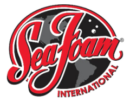Illustration of use
Adding Sea Foam Motor Treatment to gasoline and diesel will help.
- Dissolves dirt, oil stains, hydrocarbon residues and deposits
- Stabilizes fuel conditions by preventing the formation of dirt and oil stains
- Clean carburetor/fuel nozzles, intake valves, pistons, combustion chambers
- Control of small amounts of water in the fuel system
- Lubrication, thus reducing wear and extending engine life
Maintenance Tips.
- For engines that are regularly refueled, use 1 or 2 cans of this product for every 2,000 to 5,000 miles driven
- If the engine is running on fuel that has been stored for more than 3 weeks, add Sea Foam to each tank of new fuel.
- Remember, Sea Foam in the tank cleans and lubricates the entire fuel system at all times
- Engine Type. All gasoline and diesel engines
- Applicable products. Sea Foam Motor Treatment
- Product Number. SF16CN
- Quantity. See Maintenance and Cleaning section for recommended dosage

Add SEA FOAM MOTOR TREATMENT to gasoline and diesel fuel tanks
Maintenance
To maintain good engine condition or stable fuel storage, Sea Foam's maintenance recommendation for all fuel types is to add 1 ounce of this product per gallon of fuel. One pint size is for 16 gallons of fuel. The one gallon size is for 128 gallons of fuel. Simply pour directly into the fuel tank.
Cleaning
When cleaning a gasoline or diesel fuel system, it is safe to add more Sea Foam to the fuel. In fact, the more Sea Foam you add to your fuel, the more cleaning power you will have. Consider adding it when the fuel level is low to maximize the concentration of the cleaner. You can always add more fuel to change the concentration of the cleaner.
Cleaning concentration is:
- Minimum 2 ounces of Sea Foam per gallon of fuel
- Highest Sea Foam to fuel mix ratio of 50/50
Other
Sea Foam Motor Treatment contains only petroleum-based ingredients and is safe for use in all types of gasoline and diesel engines. Contains no harsh detergents or abrasive chemicals.
